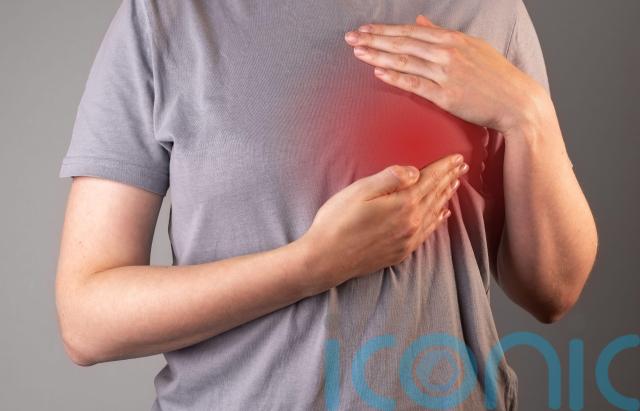
Findings from a new survey suggest that many people delay having potential cancer symptoms examined because they struggle to book GP appointments or assume the symptoms aren’t serious.
Cancer Research UK surveyed 6,844 people via YouGov in the UK and found that 53% of people thought it would be difficult to get an appointment, 47% found it difficult to get an appointment, 44% assumed the symptom wasn’t anything serious and 43% decided they could manage the symptom themselves.
In light of these findings, Megan Winter, health information manager at Cancer Research UK, emphasises that any unexplained change should be flagged to your GP.
“Our message is that you need to get everything checked out if it’s not normal for you because there are so many different signs and symptoms of cancer and they can manifest differently for different people,” says Winter. “Listen to your body and if you notice something unusual that doesn’t feel right, talk to your doctor.”
Although cancer can manifest in many ways, here are eight signs that should always be evaluated by a professional…
1) Unusual lump or swelling

“If you’ve noticed any unusual lump or swelling anywhere on the body, that is something that you should get checked out by a GP,” advises Winter. “For example, a lump or swelling anywhere around the breast, underneath the elbow and up to the collarbone is something that should get checked out in relation to potential breast cancer.”
2) Unexplained weight loss or tiredness
“Some of the more general symptoms of cancer that can affect the whole body are unexplained weight loss or tiredness,” says Winter. “For example, if you’re losing weight without trying, that’s something to talk to your doctor about.”
3) Unexplained bruising
“Unexplained bruising can be another more general symptom,” says Winter. “For example, if you are bruising more easily, but you haven’t hurt yourself.”
4) Change in bowel habits

“If you’ve noticed a change in your bowel habits, such as you’re constipated more or are pooing more than normal, that’s something to talk to your GP about,” says Winter. “In addition, blood in your poo or wee, or unexplained bleeding from your vagina in between periods and after sex is also something to flag.”
5) Breathlessness
“If you are feeling breathless doing your usual day-to-day activities, like doing housework and feeling breathless for no apparent reason, then that’s something to flag up with your GP,” says Winter.
6) Persistent cough

“If you’ve got a persistent cough that hasn’t gone away in three weeks, or if the cough has changed, or if it’s getting worse, it’s important to speak to your doctor about that,” says Winter.
7) Unexplained pain
As we get older, it’s more common to experience aches and pains, but any unexplained or persistent pain anywhere in the body could be a sign of something more serious, highlights the health information manager.
8) Skin changes
“If you’ve noticed any changes to an area of skin – for example, you have an area of skin that’s perhaps isn’t not healing – get that checked out by a doctor,” advises Winter. “A detailed list of specific symptoms of melanoma skin cancer can be found on Cancer Research UK’s website.”
Who should you go to first?

Your GP should always be your first port of call about any health concerns.
“We often hear from people that it’s difficult to get an appointment with their GP, but it’s important to keep persisting,” says Winter. “There’s lots of different ways that you can contact your GP now, including over the phone, online, or by popping into your GP surgery.
“It’s not the public’s job to know what’s wrong with them, that’s what the doctor is there for, so you won’t be wasting their time by bringing these concerns to them.”
Why is it important to flag these symptoms early?
“It’s important to flag any symptoms early because cancer that’s diagnosed at an early stage is more likely to be treated successfully,” says Winter. “When a cancer is smaller and hasn’t spread, there’s more treatment options and it’s more likely to be treated successfully.
“If you can listen to your body and talk to your doctor about any change, that can make all the difference in terms of outcomes. In most cases, it’s not going to be cancer, but if it is, spotting it early makes all the difference.”
Subscribe or register today to discover more from DonegalLive.ie
Buy the e-paper of the Donegal Democrat, Donegal People's Press, Donegal Post and Inish Times here for instant access to Donegal's premier news titles.
Keep up with the latest news from Donegal with our daily newsletter featuring the most important stories of the day delivered to your inbox every evening at 5pm.